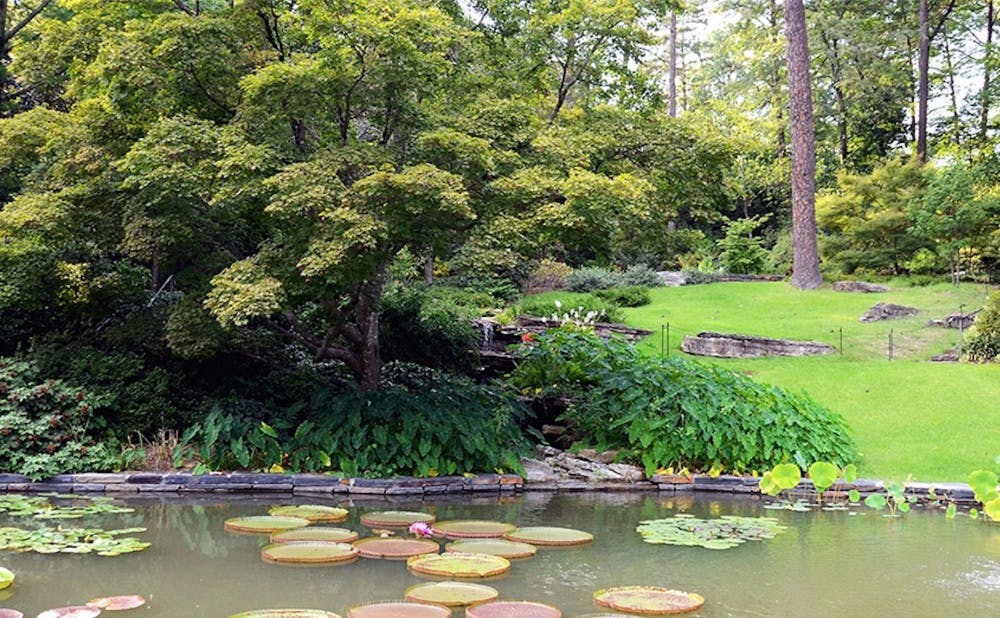During a typical semester, the winding paths of the Sarah P. Duke Gardens are dotted with groups of students. This year, the only way to experience the Duke Gardens is by peeking around the signs that stand at every entrance—signs that read “CLOSED.”
The Duke Gardens have been closed to visitors since March in an effort to preserve campus safety. The chances of them reopening soon are slim.
“We’re still working with university officials,” said Robert Mottern, director of horticulture at the Gardens. “We just don’t have a timeline. They’re watching things at the university, and they’ll let us know when they feel it’s safe to open the gardens again.”
Although the Gardens are outdoors—where the danger of viral spread is shown to be lessened—the high volume of visitors makes them a potential danger zone. The Duke Gardens are the most visited site on campus, receiving 500,000 visitors every year. During the spring, up to 5,000 people could visit in a single day, Mottern said. Crowds of that size were deemed too much of a risk, and the Gardens were closed.
The absence of the Duke Gardens is felt by some upperclassmen living on campus.
“The Gardens were something I never really actively thought about. But they were always a haven,” senior Sean Cho said. “I usually went there whenever I was having any anxiety about anything going on. It was a good place to get my mind off things.”
For Sean, the Gardens are another item on the list of what is different for students this year. However, the jobs of the staff there remain unchanged.
“Initially, we cut staff, but we have brought all of our horticulture staff back,” Mottern said. “The plants continue to grow, and the weeds don’t stop growing, no matter what happens. We’ve been able to continue maintaining the garden, and as soon as we get the go-ahead, we will be ready.”
The absence of visitors does not go unnoticed by the staff. Mottern said that the most enjoyable part of his job is seeing visitors come in and “just be marveled at all the amazing horticultural displays we’ve put together.”
Until the Gardens reopen, there are alternatives. The Duke Gardens have developed an online aspect to their educational department. On the Gardens website, one can find videos and articles about how to experience nature while remaining socially distanced, as well as programs from the Piedmont Naturalist series to presentations about ecology and environmental justice.
According to Mottern, programs such as Zoom calls with naturalists have had strong turnouts. The online programming has had a particular draw to younger audiences, many of whom are not returning to school in person.
Get The Chronicle straight to your inbox
Sign up for our weekly newsletter. Cancel at any time.

